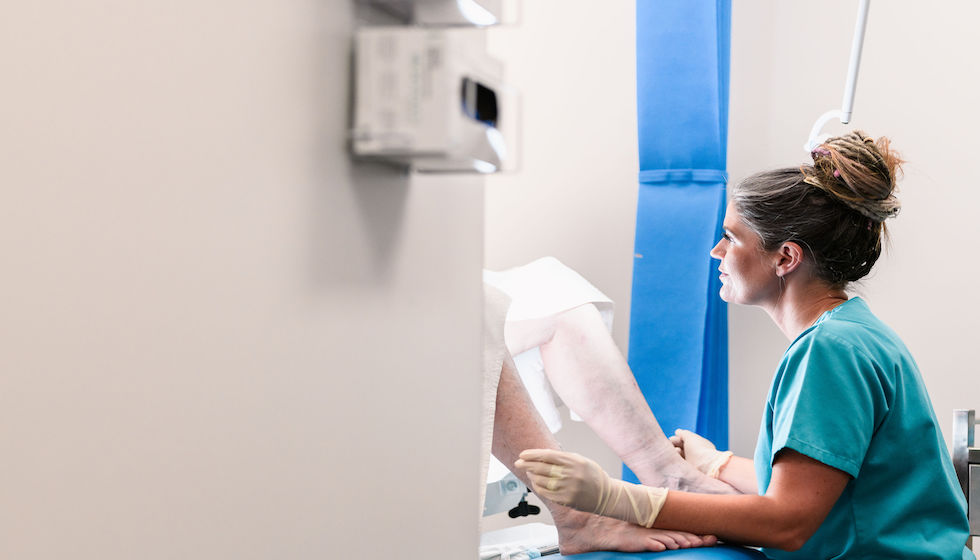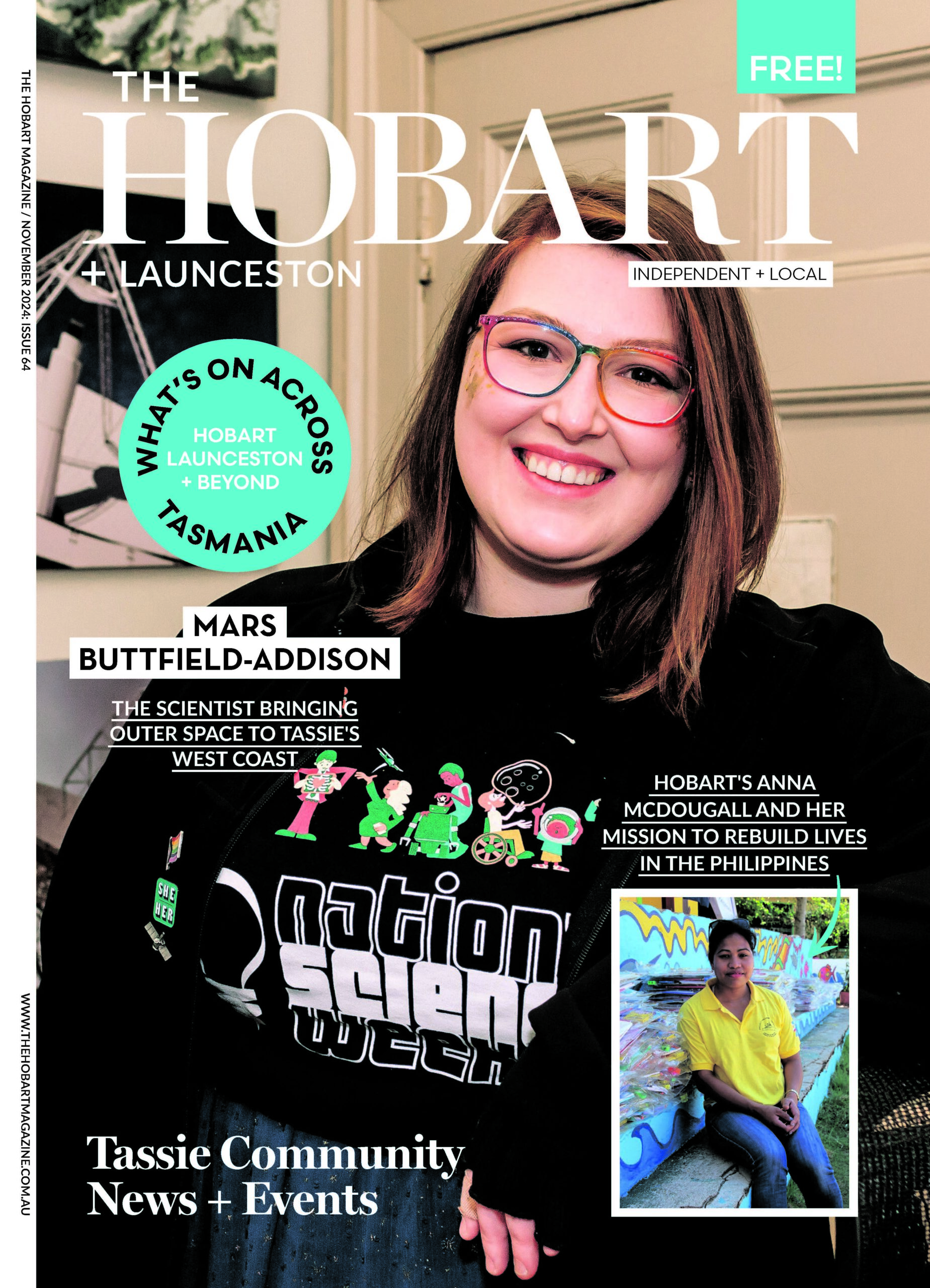Local People: Dr Emily Ware
by Hobart Magazine

The world of women’s health can be full of misconceptions. Dr Emily Ware, a Hobart GP specialising in women’s health, is passionate about bucking this trend.
Where did you grow up and where do you live now? I grew up in northwest Tassie in the small towns of Stanley and Kindred, building cubbies, making potions and wearing dress-ups. I now live with my husband and three kids, chooks and dog in West Hobart at the foot of Knocklofty Reserve where cubbies abound!
Tell us a little about your work. My unpaid work involves culinary, taxi, and emotional support duties to my family, and I also volunteer time for our church community. My paid work involves caring for women, girls and those assigned female at birth of all ages as a women’s health GP at TasWomen – a multidisciplinary practice in Hobart, as well as in an antenatal clinic at the Royal Hobart Hospital, and writing clinical guidelines in women’s health with Primary Health Tasmania.
Why did you want to specialise in vulvovaginal health and endometriosis? I love helping women! There are just too many stories of women feeling unheard, unvalidated and really stuck with functionally impairing symptoms. I have a vulvovaginal clinic and it’s heartbreaking that a 5cm2 area of your body can cause such grief for some. It’s an absolute privilege to help women, and those assigned female at birth, affected by these conditions, and sometimes I get to witness changed lives. I guess I’m not scared of the hard stuff, and desire to help women feel comfortable, to seek help and talk openly about symptoms affecting them.
Your professional journey has taken you to diverse settings, including rural Bangladesh and regional Australia. How have these experiences shaped your approach to patient care? I think the most important lessons I’ve learnt are to be vulnerable, to remain curious, and to always try to help the person in front of you. When you live or work cross-culturally you soon learn the discomfort of not understanding and not knowing. This is the basis of not holding bias – what we think we know about people, how they live and where they come from may not be true. We should always ask and welcome differences. Tasmania is home to a diverse population, and yet we are often connected to people in one way or another. I hope I always remain interested in people’s background and their potential to live abundant lives, and continue to be vulnerable towards my patients and courageous in their care.
What are some common misconceptions in women’s health? Your pain is not real. You can diagnose perimenopause from a blood test. Painful sex is normal. Vulval irritation is normal. Hang on, we should back up – because what is a vulva? Isn’t it all just a vagina?…MONA really does need to rename their ‘Vagina Wall’!
You recently worked with Vagenius Training on a course for GPs. Why is it important for GPs to have more knowledge in this area? Assessment and management of Persistent Pelvic Pain (PPP) have not historically been taught in medical school, hospital training, or in our GP training. Yet 1 in 4 women experience pelvic pain and 1 in 7 women have endometriosis. It is common, complex, it can be chaotic, and when we are trying to deliver care to women but are undertrained, it can be very anxiety-provoking. All that GPs need to manage these complex presentations well, and with holistic plans, is in this really engaging course by Vagenius Training. We really believe this course can change lives for women suffering PPP and for the GPs who manage them.
Who do you admire? I truly admire a sacrificial heart. Those that give up something of themselves to serve others who are less privileged or under-resourced. I have witnessed these people working in medicine – particularly in rural areas, in faith-based ministries and in resource poor countries. Dr Catherine Hamlin, a gynaecologist who pioneered fistula surgery, voluntarily, to women in Ethiopia, worked across all these areas and will always be a hero.
Favourite podcast or tv show? I’m not much of an aural learner but I have listened to all of The Vulva Diaries. As I write this, I have one more Bridgerton episode to watch.
Secret vice? Black Villino coffee brought to me by my husband every single morning.
What are you reading now? Always too many books piled next to my bed – to name a few…The Gifts of Imperfection, Brene Brown; Oryx and Crake, Margaret Atwood; Recommendations for the Diagnosis and Treatment of Vaginitis, ISSVD; The Gospel of John.
What was your first job? I folded manchester at Best and Less. I will forever have affection for a well folded towel, in thirds!
Your favourite place for…
Breakfast: Coffee at Yellow Bernard for exceptional service or Pigeon Hole Bakers (way too lucky that it’s opposite my workplace).
Lunch: I’m a sucker for Tassie’s paddock-to- plate so it would have to be a slow lunch that melds into dinner at Van Bone or The Agrarian Kitchen.
Dinner: As above.
Favourite team? The Matildas.
Dream holiday destination? Too many! Pisco Sours and lots of dancing across South America is currently top of my list.
Favourite Tasmanian secret? 2017 Gala Estate Sparkling Rose
Parting words? It’s a vulva not a vagina!

